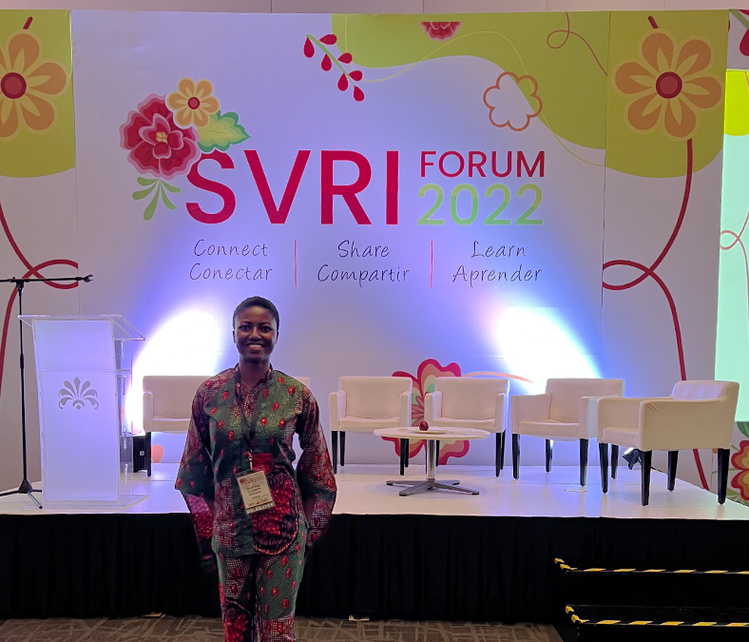One of our regional leaders from the Global Youth Coalition for Road Safety, Olufunke Afesojaye, joined the SVRI Forum earlier from the 19th to the 23rd of September in Cancún, Mexico. The SVRI, which means Sexual Violence Research Initiative, aims to achieve a world free of violence against women and children. In one of SDG 5 Policy Brief, we highlight how road safety connects with gender equality and the importance of providing women with safe spaces to move.
In our Policy Brief, co-written by Olufunke, we emphasize the reality of the lack of equitable access to safe and secure mobility for women and girls. This continues to be a global issue that results in the denial of access to services and economic, political, social, educational, and cultural opportunities. This also results in a culture of creating significant barriers to equal participation between genders.
The SVRI Forum presented the newest innovations for preventing and responding to gender-based violence, especially in low-to-middle-income countries. The Forum also provided different stakeholders, researchers, and practitioners in the field of violence against to meet and connect. As a delegate, Olufunke had the opportunity to share her experiences as an advocate for road safety and against gender-based violence.
The Forum presented cases on why violence against women results in global inequality. The research shows that nearly 1 out of 3 (35%) women have experienced physical and sexual violence worldwide. This includes sexual harassment and violence in public spaces and unsafe modes of transport.

One of our regional leaders from the Global Youth Coalition for Road Safety, Olufunke Afesojaye, joined the SVRI Forum earlier from the 19th to the 23rd of September in Cancún, Mexico. The SVRI, which means Sexual Violence Research Initiative, aims to achieve a world free of violence against women and children. In one of SDG 5 Policy Brief, we highlight how road safety connects with gender equality and the importance of providing women with safe spaces to move.
In our Policy Brief, co-written by Olufunke, we emphasize the reality of the lack of equitable access to safe and secure mobility for women and girls. This continues to be a global issue that results in the denial of access to services and economic, political, social, educational, and cultural opportunities. This also results in a culture of creating significant barriers to equal participation between genders.
The SVRI Forum presented the newest innovations for preventing and responding to gender-based violence, especially in low-to-middle-income countries. The Forum also provided different stakeholders, researchers, and practitioners in the field of violence against to meet and connect. As a delegate, Olufunke had the opportunity to share her experiences as an advocate for road safety and against gender-based violence.
The Forum presented cases on why violence against women results in global inequality. The research shows that nearly 1 out of 3 (35%) women have experienced physical and sexual violence worldwide. This includes sexual harassment and violence in public spaces and unsafe modes of transport.

